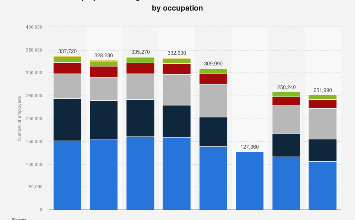Attempted copper theft cuts internet, phone access in parts of Calgary

Call grows for tougher laws to deter telecom vandalism: ‘If someone is caught, they get charged with theft under $5,000 — which is the same as stealing a bicycle’
Article content
Some 15,000 Shaw customers in north Calgary were without internet, television, or phone service following an attempted copper theft early Monday, stoking calls for more deterrence in response to what’s described as a growing issue in Canada.
Technicians remained at the site of a broken cable for much of Monday, working to restore service as quickly as possible, according to a 1 p.m. update from Shaw.
Advertisement 2
Article content
Article content
“As outages with this magnitude will take longer to repair, we will continue to monitor the situation and provide updates when available,” the update said.
In an emailed statement, Shaw said the outage affects some customers in north Calgary, including parts of Mount Pleasant, Tuxedo Park, and Crescent Heights.
According to previous information provided by Shaw’s service outage page, crews determined the outage was caused by a fibre cut during an attempted copper theft.
“Repairing a damaged fibre line can typically take between 8 to 12 hours,” the update read.
Rogers, together with Shaw, has experienced four to five times increase in outages due to vandalism since 2022, it said. Rogers became Shaw’s parent company last year.
The statement also highlighted that outages caused by vandalism can take three to four times longer to repair than any other outage types due to the extent of damage and associated repairs.
“Multiple technical teams are on-site and working to restore services as soon as possible. We apologize to our impacted customers for the inconvenience and will keep them updated on our progress,” read the statement.
Article content
Advertisement 3
Article content
Shaw also said the telecommunications company notified authorities of the incident, but the Calgary Police Service had not responded to questions from Postmedia as of Monday afternoon.
‘Large increase’ of copper theft in telecommunications: industry expert
Separately, criminal charges were filed earlier this year against a man and a woman following the theft of telecommunication wire that left more than 2,000 Calgarians without internet or phone service.
“Criminals are seeking to steal copper from telecommunications infrastructure, and sell it as scrap metal to make money,” said Eric Smith, senior vice-president of the Canadian Telecommunications Association.
“We’ve seen a large increase (of theft) over the last couple years as the price of copper has increased,” Smith said. “This is causing millions of dollars of damage to infrastructure across Canada.”
Despite their being no central registry for instances of copper theft, Smith said that many of their members are seeing increases of several multiples in cases of vandalism, the vast majority of which are linked to copper theft.
Advertisement 4
Article content
Beyond impacts to individuals internet access, outages can also affect things like emergency services, hospitals, governments, and financial services. Smith said, “It is an ongoing problem, and a serious one.”
Ross Johnson, security consultant for critical electricity infrastructure in Canada, said instances of copper theft can often be tracked to economic conditions, not just the price of copper itself.
“If the unemployment rate is high, and the economy is doing badly, then you’ll see pressure on the places that have copper exposed to the public,” said Johnson, who’s also the founder of Bridgehead Security Consulting Inc.
In terms of tackling the problem of copper theft, and theft of other metals, Johnson referred to the approach as a “full-court press.”
“You have to come at the problem from all sorts of different approaches.”
One thing he noted was that telecommunications and electrical equipment can be marked with a company logo in some way, so that recycling facilities know where it came from.
“That would mean that if any of your marked stuff showed up at a recycler’s that you don’t have a contract with, then by definition it’s probably stolen.”
Advertisement 5
Article content
Also playing into it is communication with law enforcement, he said, to make sure those that are caught are appropriately punished.
Smith echoed similar sentiment, saying: “We’re urging government to increase the penalties under the Criminal Code.”
“Right now, typically, if someone is caught, they get charged with theft under $5,000 — which is the same as stealing a bicycle,” said Smith.
The goal with a stronger deterrent is to send a message to criminals that theft is not worth the risk, according to Smith. He also pointed out that much of the industry is investing in heightened security for critical network facilities.
Johnson said, “It’s a problem of reliability and safety, and, frankly, it is expensive.”
“You can steal 10 bucks worth of copper out of a telecommunications site or electricity site, and it can cost tens of thousands of dollars to replace it properly.”
Earlier this year, Bell announced the installation of aerial alarms for its network, which provide real time alerts of infrastructure vandalism and copper theft.
With files from The Canadian Press and Postmedia
Article content



